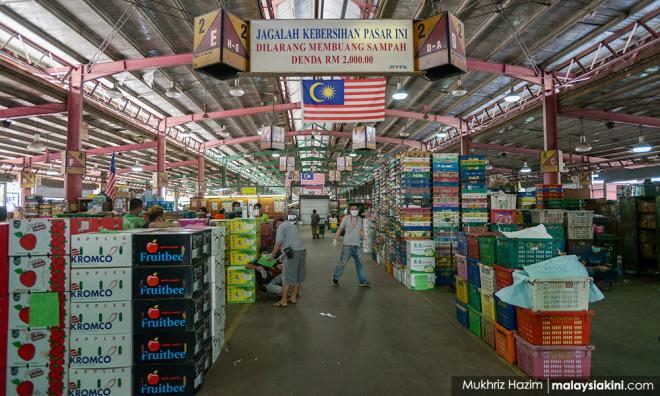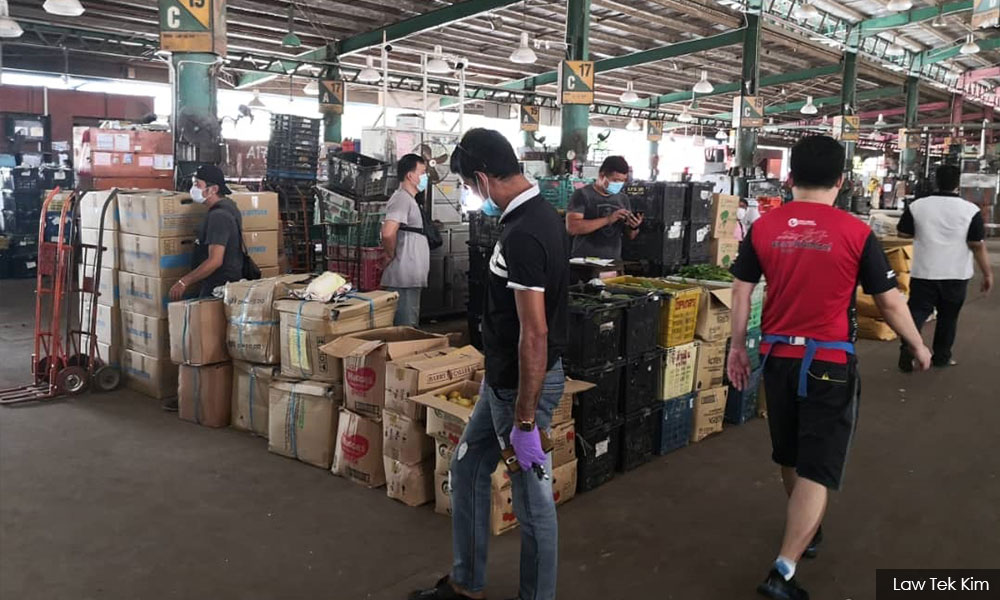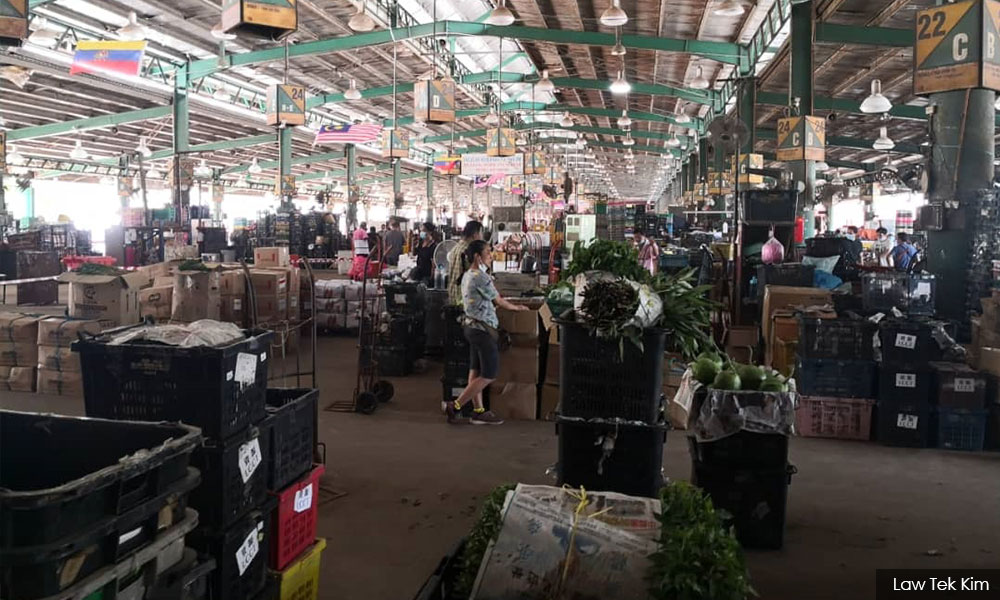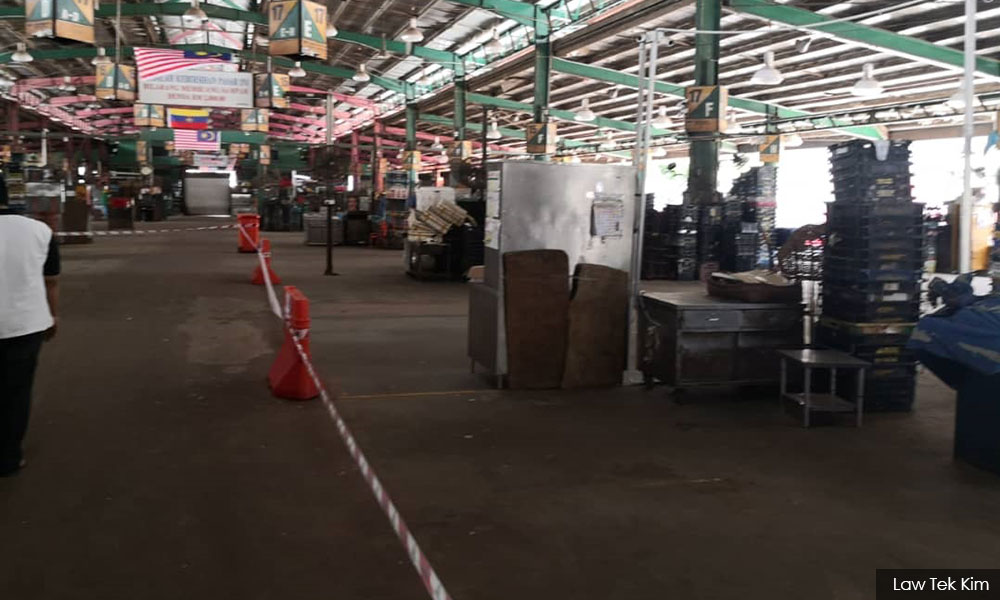
The addiction of Malaysian businesspeople to cheap and exploitable labour has been laid bare by the movement control order (MCO). With it, the role of the government servants – aiders, abettors and co-conspirators in this sordid affair – is in the public domain for all of us to form educated opinions.
If previously we had talked in hush tones on the state of the (illegal) labour market, these days there’s nothing shameful to talk openly, enter into a debate or even make demands for what is illegal to be legalised in the name of a business.
The audacity of such extraordinary, brazen and unabashed wants of these people are akin to addicts flexing their muscles for their periodic fix at all costs.
Cheap labour has been the workhorse for the money that is being churned. Poorly-paid, back-breaking tasks, bad working conditions and unlimited working hours – all of which have come to the fore as attempts are made to restore some façade of orderliness.
Yes, they had been surviving and succeeding (read: lining their pockets) at the expense of undocumented foreigners who crossed the high seas to eke out a living. Without proper wages, accommodation, insurance coverage and access to health, they are caught in this vicious circle.
The slightest grouse or expression of unhappiness with the pay or the working conditions mean one would no longer stay and work in the sanctity of the workplace and the employer. It would mean walking the streets, risking being picked up and sent to detention centres.

Today, the Selayang wholesale market stands as a monument of all that is wrong with this country. It is a microcosm of the nation – systems have broken down, corruption has taken root, the statute books being thrown out of the window and laws are made, changed and even revoked just for the convenience of a few special ones.
The results are showing and they are indeed telling. Evidence of years of having operated in a lawless atmosphere is scattered in the entire environment. Materialistic gain had taken precedence over governance. Humans have become collateral damage in this exercise.
The system is now at its crossroads and let it be made clear – law and order will have to ultimately rule – no “ifs” and “buts”. The business people who conceived, crafted and hewed this casual yet simple employment system and converted it into an art – a formula to exploit the vulnerable – are in a spot.
But how did we allow it to happen? Why did we watch authority and governance go down the drain or disappear into thin air? “We” meaning the system, the government, the law enforcers and others involved in ancillary and support services.
Were the health officers blind to the conditions of the market, its hygiene, the traders and workers? Didn’t the enforcement officers on their rounds notice the presence of foreigners who were running the businesses?
The blatant defiance of the rules and regulations by the operators may be an issue, but a bigger question: What were the authorities doing all this while? Are we to assume that it would have been business as usual if not for the enhanced MCO?

Aren’t there periodic inspections by the various authorities as part of their standard operating procedures (SOPs)? Even if they had deliberately tutup dua mata (closed both eyes), they couldn’t have been oblivious to the nonsense that was going on because the stink would have permeated as they stepped foot in the market.
To rub salt into the already open and critical wounds, the business people want the government to dispense with all rules and procedures to allow them to operate and make profits.
It was more an arrogant demand than an impassioned plea from an official of the Kuala Lumpur Hoi Seong Fish Wholesaler Association, Sing Kian Hock, who wanted the government to allow them to employ undocumented workers.
“When the Kuala Lumpur City Hall (DBKL) announced that only legal workers (are allowed to) enter (the wholesale market), most of the stalls were affected and are unable to resume operations,” Sing said on Tuesday.
Only 22 seafood stalls out of 168 resumed operations last Saturday but the number reduced to only six stalls on Tuesday.
Malaysiakini quoted him as saying that manpower had always been a contentious issue for seafood wholesalers as they hire up to 90 percent migrant workers – who mostly worked illegally.
It sounded like an admission – a confession of a scheme which condoned, encouraged and subjugated the system. All had been done improperly at the expense of the state. Laws were bent and broken and money had been a great leveller.
Anyone, having knowingly broken the law, would seek amnesty, reprieve or forgiveness. No, this is not what the system has taught them. It is about levelling everything – the wrongs can be righted.
“(As for a long-term solution), we are urging the government to legalise them. The association had approached various ministries in the past two years on the matter, but to no avail,” Sing said.

His statements reinforce the notion that many agencies knew about the problem but allowed it to fester until it became uncontrollable. The stallholders should consider themselves lucky that they have not been prosecuted for employing foreigners without work permits.
Elsewhere, there was rearguard action from the Selayang Municipal Council – trying to paint the picture that there is some appearance of law and order.
Its president was directing an operation to demolish illegal stalls which were put up along roads and under flyovers in the vicinity. Bulldozers tore down the illegal structures and scrap metal dealers would have made a small pile.
Like a good mandore, the municipality president was well-dressed and suited for the ensuing theatrical performance before TV cameras. But no one asked him the most important questions: What took you so long? Did you just wake up after a Rip Van Winkle siesta?
All is not lost. The system must be put back in its place. The whole thing must start afresh. All government agencies must be held responsible for this. Discretionary powers must be taken away. Compliance with all laws, rules, regulations and conventions must be enforced, without fear or favour.
Regular checks and inspections must be carried out and at the slightest hint of non-adherence, licences should be revoked.
That’s the only forward. Let the Selayang Municipal Council set the gold standard. It should be the torchbearer in bringing about change, at least at the local government level. Is that asking too much from a council whose employees’ salaries are paid with ratepayers’ money?
R NADESWARAN would like to draw a thick line between undocumented foreign workers and those holding permits issued by the United Nations High Commissioner for Refugees (UNHCR). Comments: citizen.nades22@gmail.com - Mkini


No comments:
Post a Comment
Note: Only a member of this blog may post a comment.